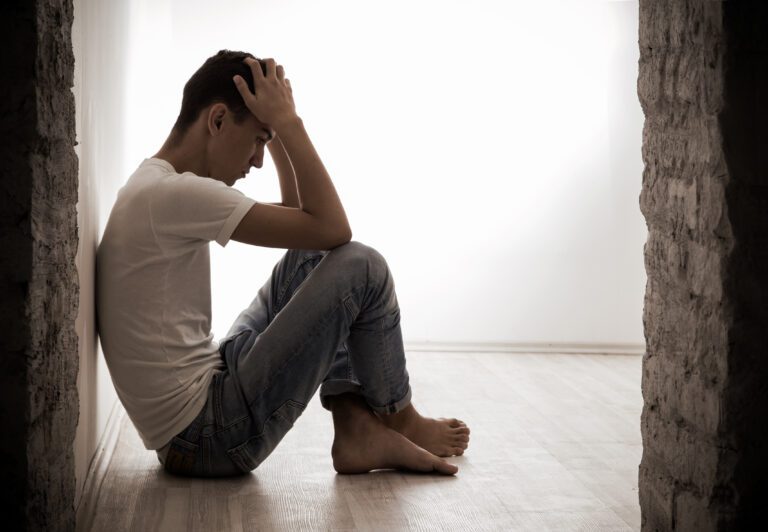I Have High Expectations of You – What Do You Expect from Me?
We all have heard of expectations, but have you really thought about them?
For example, think about these questions:
- What expectations do you have of me?
- What should I expect from you?
- Have you given serious thought to your expectations and those of others?
- How do these expectations influence your daily life?
Until recently, I felt discouraged when it came to the people in my life. I’m not saying everybody disappointments me—please don’t get me wrong.
I had an epiphany, you might say. The expectations I set for myself did not coincide with the expectations I had of others. I’m an optimist and this line of thinking gave me a complete “mind blow.”
Great, am I becoming a pessimist? Am I turning into one of those bitter people?
Let us dive deeper into answering these questions.
What Are Expectations?
We all perceive our actions and those of others through our own eyes. We crafted this perception through the lens of our expectations and environment.
We all have people in our lives. Each person plays a specific role. For example, I am a father, husband, blogger, author, friend, brother, cousin, acquaintance, and stranger, to name a few.
For each role, I have a set of expectations about how I am supposed to function. Most of the time, society dictates these different roles. Those around me have their expectations of how I am supposed to fill a particular role in their own life.
When these expectations fall in line for myself and others, both sides win. However, if I fall short, or the other person does, of these expectations, one of us will experience disappointment. It is bound to happen.
Expectations of a Bipolar Mind
Expectations are the basis for our opinions, relationships, judgments, and views. A person’s upbringing and environment help to shape these expectations.
When you live with bipolar disorder, expectations are directly formed based on the mere biology of your brain.
I bring this up because it may seem that expectations are something we can control. For the most part, they are. When you have a mental illness such as bipolar disorder, you cannot control it when you are in the throes of a mood episode.
Just like you cannot “will” yourself out of a depressive or manic episode, you cannot form rational expectations with an unstable mind. When you are in a manic or depressive episode, your brain is not stable.
Each person has a preconceived notion about how a situation will start, proceed, and ultimately finish. This is how an expectation is formed.
How do you feel when someone does not act the way you feel they should, and they let you down? It does not feel too well.
Examples of Expectations
Let us look at some examples of expectations.
A woman may expect her partner to open the car door for her. If her partner grew up in an environment where this type of behavior was taught, they might open the door for the woman. If the partner never learned this type of etiquette, the woman may be let down.
This example shows how a person’s environment and upbringing help to mold their expectations. If both the expectations of the woman and her partner match up, then both parties will have their expectations fulfilled.
An individual living with bipolar disorder does not always meet their expectations and those of others. A person who used to open the door for their partner may not even give it a second thought while depressed or manic.
During an Episode
During a full-blown manic episode, many individuals experience hypersexuality. Hypersexuality can have a devastating effect on a relationship if expectations are not set well in advance.
When a person’s bipolar disorder is stable, they have a specific set of expectations of how they act in the bedroom. These expectations can make a 180-degree turn when they become manic. For example, instead of maintaining a completely monogamous relationship with their partner, they want to sleep with pretty much anybody. It can be that intense of a change.
Bipolar disorder is an illness of the brain. Since expectations are created from the brain, and bipolar disorder is an illness of the brain, individuals cannot control these expectations when they are going through an episode. That is what I mean when I say that expectations are formed on the basis of biology regarding bipolar disorder.
Questions
Should we hold someone with bipolar disorder responsible for their actions?
What do you think?
This leads to the question, “Does the person living with bipolar disorder know the difference between right and wrong?”
Personal Responsibility
Whether you live with bipolar disorder or not, you need to take personal responsibility for your own actions. Society has adopted this view that it is always someone else’s fault. If you burn yourself on a restaurant’s cup of coffee, sue them. Living with this mentality, it is easy to adopt the victim mentality.
Living with bipolar disorder, I do not have much control when I am in a manic or depressive episode. In fact, I don’t always recollect what happened during a full-blown manic episode.
Having said this, there are many things in your control if you have bipolar disorder. When you take control of those things that you can control, you are taking personal responsibility.
You have control of the actions you take daily, such as following your treatment plan and making healthy choices. Focusing on these daily actions can help prevent a mood episode from occurring.
Prevention
To manage your bipolar disorder, prevention needs to be your daily focus. Prevention is a culmination of all the daily activities that we have control over.
For example, I have control of:
- Medication adherence
- Healthy eating habits
- Daily exercise
- Regularly see my doctor
- Consistent therapy appointments
- When I go to bed each night and get up in the morning
- Utilizing stress-relieving activities
- Eliminating and reducing unhealthy behaviors
- Terminating toxic relationships
- Other coping strategies
The Reality of Taking Preventative Measures
Just because you take action to prevent a mood episode does not guarantee you will eliminate all future manic or depressive episodes. Taking healthy action will help you to manage bipolar disorder by possibly reducing the intensity of your symptoms, shortening the length of a mood episode, and increasing the time between episodes.
More than likely, you will experience an episode even after doing everything within your control. That has been my experience. However, I found that taking positive action to manage my bipolar disorder has reduced the intensity of my episodes and increased the time between them.
Whether you have bipolar disorder or not, we should not give a free pass to anybody to do whatever they want. I tend to take on too much personal responsibility. I don’t know if that is right, wrong, or something completely different, but that is just me.
A person’s understanding of right and wrong is molded from their experience. A person’s environment and upbringing help to create their expectations. They create the individual’s opinions, judgments, relationships, and views.
Optimist or Realist?
I have always had high expectations for myself. That will never change. For most of my life, I held others to those same expectations. At least, that is what I thought.
Whatever role I played, whether it be a friend, sibling, father, or close confidante, I expected the other person in the same role to function in the same capacity as myself. I just thought that is how it worked. A large portion of the time, my feelings and actions were never reciprocated. I consistently felt let down.
Have you ever felt that you give, give, give, and your actions are not reciprocated? I have felt this way many times throughout my life. You could use the term “naive” to describe my previous outlook on life.
No one can control you, just like you cannot control them.
Have you heard of the saying, “Hope for the best, but expect the worst?” Realistically optimistic. Yes, I think that is the best way to say it.
Now, I carefully choose who I allow into my close circle.
Expectations of Relationships
As I mentioned, I thought I held others to the same high expectations as myself. In reality, I held the same high expectations for myself, but my expectations of people were so low that I accepted how they treated me.
Having no expectations of another person allows them the ability to treat you however they want. If you have no expectations, you do not have a set of standards by which to compare.
This has sometimes put me in a very awkward position. Only in the past few years have I come to this realization, which has forced me out of my comfort zone.
I asked myself, “Should I keep doing what I am used to doing or should I change it?”
I chose the latter. This was one of those forks in the road that if I chose one way, my life would be completely different compared to the other option.
Learning About My Expectations
Now, I hold those around me to the same high expectations that I do for myself. I’m the one in control of my inner circle.
If people do not meet my expectations, I can either:
a) Cut them out of my life, or
b) Expect that they will treat me below my acceptable standards
This epiphany opened my eyes to various triggers and toxic relationships in my life. To create and maintain stability, I had to cut ties with some of these relationships.
Again, others have their expectations of how I am supposed to play a specific role in their own lives. Sorry if I disappoint, but managing my bipolar disorder is more important than the way I “should” be acting.
Last Thoughts
Now, I focus on those relationships that are most important to me.
It is easier for me to chat with a loved one if I have a question about their role in my life or if I have a specific question about my role in their life.
Open communication has supported my growth in this role.
Should I expect more from you? No, I will never expect more from you than I do of myself.
If I have a question, I will let you know.







